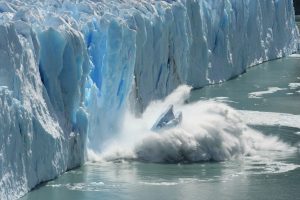Ocean acidification: how climate change is affecting our oceans.
While the impacts of climate change on land are hotly discussed, its effect on our oceans and marine life tend to fall into the ‘out of sight out of mind’ black hole. Yet the effect of increased carbon dioxide levels in our atmosphere is likely to have significant impacts both on our marine life and on us – our society and our economy.
Our oceans are one of our most important carbon sinks – absorbing around a third of the carbon dioxide (CO2) emitted by burning fossil fuels. When CO2 is dissolved in water, a new compound is formed – carbonic acid. High concentrations of carbonic acid can have effects on other compounds in our waters – calcium carbonate being one of them.
Much of our marine life depends on calcium carbonate to grow, provide shelter or protection. Just think of our shellfish & crustaceans – mussels, crabs, oysters, crayfish, paua – their shells are all composed of calcium carbonate.
Calcium carbonate forms the building blocks of some of our most important biological life forces in our seas – such as plankton – which are comprised almost entirely of calcium carbonate. Plankton essentially plays the same role as our forests on land, by absorbing CO2 and converting it to oxygen. Without these tiny plants, marine food chains would collapse and the available oxygen in our atmosphere would diminish.
As more and more of the carbon dioxide we pump into our atmosphere is being absorbed by our oceans, our seas become more acidic, causing this calcium carbonate to break down.
Scientists have named the phenomenon ocean acidfication. While the current detected change in ocean pH appears minor (just 0.1 pH units), it has been predicted that by the end of the century, our ocean pH will have declined by 0.4 pH units and the available calcium carbonate will have declined by 60%.
So what does this mean exactly? In a nutshell, it means that the homes, bodies and life support of much of our marine life will diminish (see the video below for more on this).
As well as a reduction in calcium carbonate, marine life could suffer directly from the effects of more acidic water. For example, it would affect the immune responses of fish. Their metabolism, behaviour and reproduction may also change. The acidification of our oceans could change the availability of food in our seas & break down important food chains, affecting our larger marine mammals such as dolphins and whales.
So are we really going to let the seas dissolve before our eyes? What are some of the solutions? And how can you and me make a difference?

